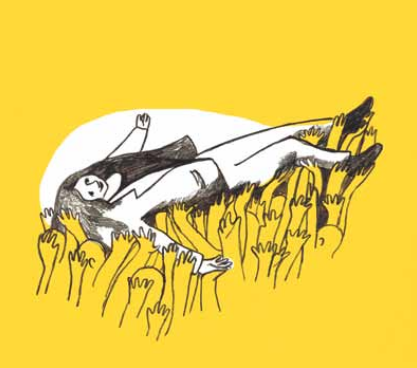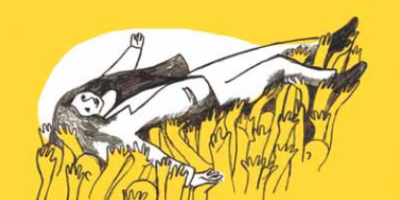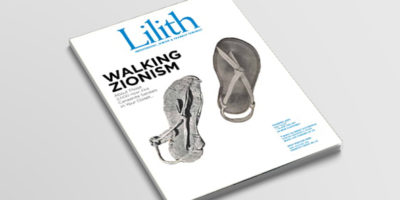
in a congregation’s response to attempted murder
An abusive husband turns violent, and his victim discovers the potency of community.

by Hila Peleg
More than a decade ago, I was harassed and stalked for three months by my estranged husband. We had been in and out of court, with the judge issuing injunctions for protection. During those months — as if by some divine miracle — my eldest daughter celebrated her bat mitzvah.
Shortly after the simcha, my husband (and the father of my three children) turned violent. Armed with a gun, he forced me into my car and drove me to a secluded area. There he violently beat me, struck my head multiple times with a shovel, and left me for dead.
After being in the ICU for several days, I was discharged to home. Suddenly there I was: not only needing to recover physically, but without a job and with no means to support or feed myself and my children. During the stalking, my employer had laid me off, fearing workplace violence. My husband, wounded by police gunfire, was medically stabilized and then sent to prison.
I had always valued being an active member of my community. I was a good neighbor, I pitched in unfailingly as a parent at my kids’ school and after-school activities, and I involved myself in civic events. Wherever we lived, though — including in a small prefecture in Japan — my biggest involvement was with the Jewish community. It was a priority for me, when we moved somewhere new, to make sure we found a warm and welcoming Jewish community of which to be a part.
Prior to this traumatic period in my family’s life, we’d experienced five years living and participating in the Jewish community at the Jacksonville Jewish Center in Florida. My children were students at the Solomon Schechter Day School that was attached to the Center’s building, and we were regular attendees at services. We knew many of the members at our congregation, and they knew us.
When I regained consciousness in the ICU, I opened my eyes to a huddle of warm and familiar faces. A small team of attorney friends from the Center were talking with my attorney (also from the Center), trying to figure out how they could be of assistance. They stayed involved for the six months it took to settle my divorce and have the state of Florida prosecute my ex-husband for criminal acts. (He was sentenced to prison for 26 plea-bargained years.) I never received a single legal bill. Others from the Center fed us — for three solid months — bringing hot meals and groceries to our door every day. I am sure there were many, many acts of kindness on our behalf that I am still not aware of.
The mitzvot did not stop. When Hanukkah arrived, my kids each received perfect, customized gifts. I particularly remember my four-year-old son opening a large Buzz Lightyear talking action-figure which became indispensable to him for years. I was in no position as a mother to afford anything for my children, and I wept tears of gratitude when others stepped in to keep me from feelings of maternal failure.
The biggest gift was that all of this happened without my having to ask for help. We’d had months of tragedy, but it was offset by the profound experience of having been stupendously cared for.
These selfless acts became formative memories for my children, each of them having experienced the power of having a community surrounding and supporting you when you desperately need help. I find myself telling my kids, though they already know this, that no matter where they live, it is critical to become participating members of their Jewish community. I emphasize how crucial a role each person can and must play, and how important it is that each of them ensure that his or her community thrives.
Since our ordeal, my children and I have volunteered even more in our communities, donating gifts to families in need at Christmas and Thanksgiving, giving to any and all community toy drives, and always participating with the spirit of good citizenship and of caring about our fellow human beings.
We don’t choose our family, but we choose our friends; we also choose our communities. I have remained comforted that, throughout the years, my family has chosen its Jewish communities wisely, each and every time. My children had early examples of selflessness — both of giving and of having to take — and I trust that as they go out into the world they will actively participate in their own chosen Jewish communities.
We shared a once-in-a-lifetime experience and it changed us, making us feel grounded, surrounded, and forever grateful. We will always give back.
Monique Faison Ross now lives in West Hartford, Connecticut, with her wife of two years. Their wedding was the first same-sex marriage in her Conservative synagogue’s 95-year history. Her four children now range in age from 12 to 30.



